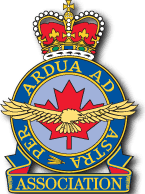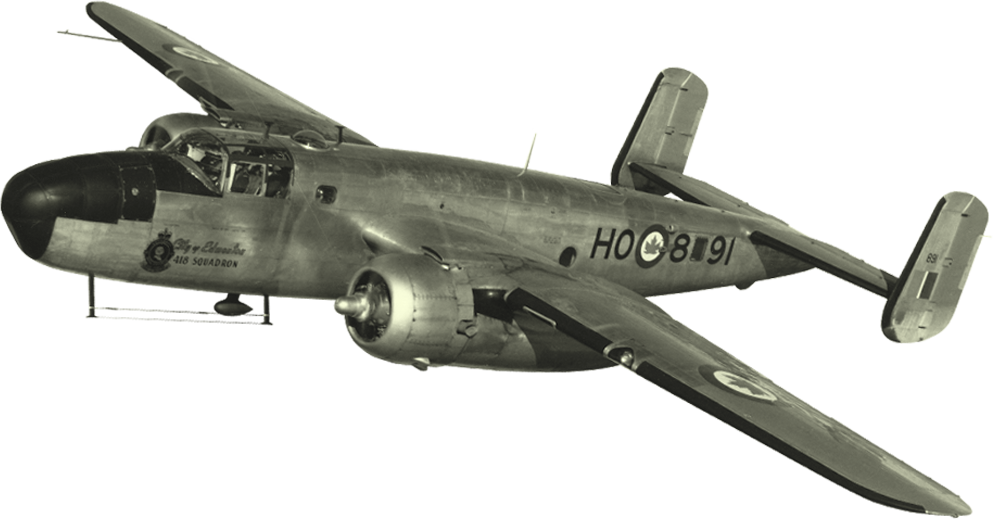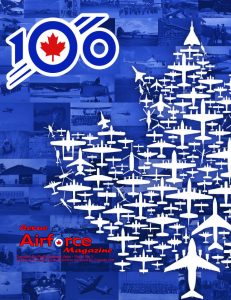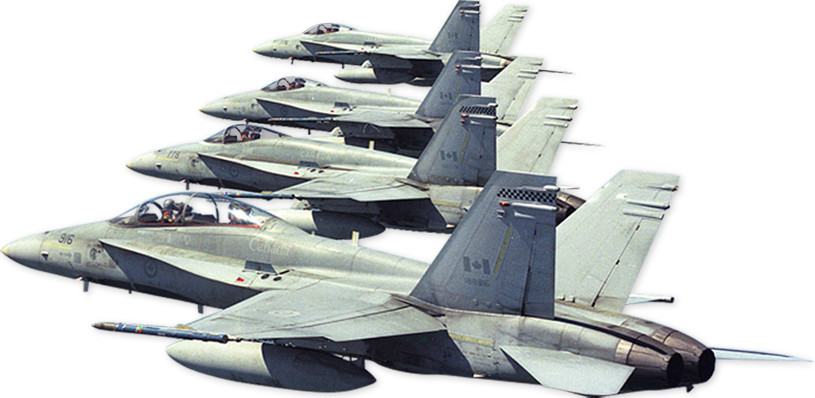McGREGOR,
Gordon Roy
Flight Lieutenant,
No.1 (Canadian) Squadron,
C936
Distinguished Flying Cross
RAF WWII
Description (click to view)
McGREGOR, F/L Gordon Roy (C936) - Distinguished Flying Cross - No.1 (C) Squadron - Award effective 25 October 1940 as per London Gazette of that date. Born in Montreal, 26 September 1901. Inspired to fly when he saw Count de Lessups at the Montreal Air meet of 1911. Educated at St.Andrew's College (Toronto) and then McGill University (Engineering). Then joined Bell Telephone and by 1938 had become Montreal District Manager. One of his tasks was to collect on a $ 4,000 bill from the city Mayor, Camille Houde. Private pilot, won Webster Trophy, 1935, 1936 and 1938 as most outstanding amateur pilot. Joined RCAF Reserve, Provisional Flying Officer, 1 October 1938 with seniority from 1 July 1936. At least three officers waived (in writing) their seniority in favour of him; obtained RCAF wings at Camp Borden, 29 April 1939. Attended summer camp training at Camp Borden, 27 May to 10 June 1939. Reported to Station Trenton, 12 September 1939 to 24 September 1939. Assigned for temporary duty with No.1 (F) Squadron, St. Hubert, 27 October to 7 December 1939 (first flight in a Hurricane on 31 October 1939 and proceeded to Dartmouth, 4 November 1939). To AFHQ, Ottawa, 19 November 1939. Appointed Adjutant of No.115 Squadron, 27 December 1939. Promoted Flight Lieutenant, 1 January 1940. To No.1 (F) Squadron, 28 May 1940 and went overseas with it, June 1940. Oldest Canadian pilot in the Battle of Britain. Promoted Squadron Leader, 7 October 1940. To No.2 Squadron, 14 December 1940; promoted Wing Commander, 1 April 1941; to Station Digby 14 April 1941. Promoted Group Captain, 1 August 1942. Overseas Headquarters 1 September 1941 to 21 April 1942; returned to Canada, 21 April 1942; to command RCAF units in Alaska, 1 July 1942. To command Patricia Bay, 1 April 1943 to 6 February 1944. Returned overseas, 25 February 1944 as co-pilot, Liberator BZ967. ; No.83 Group, 20 March to 12 July 1944, Officer Commanding No.126 Wing, 12 July 1944 to 3 October 1945. Returned to Canada, 21 October 1945; released 27 November 1945. Later president of TCA (Air Canada). It was reported that, on assuming the presidency of that firm, the Minister of Transport (C.D. Howe) said, "You stay out of the taxpayer's pockets and I'll stay out of your hair,", to which McGregor replied, "I'll have you out of my hair as soon as possible." In the next twenty years the company lost money only twice; he retired in 1968. Honorary Wing Commander, No.401 Squadron, 15 April 1950 to 15 July 1955. RCAF photo PL-4882 (ex UK-691) shows a F/L Bishop, RCAF (Conducting Officer), A.C. Howe, captain of a ship and W/C G.R. McGrgeor, DFC following arrival of a BCATP draft in the United Kingdom. See PL-5863 (head and shoulders); RCAF photo PL-32962 (ex UK-15021 dated 18 September 1944) is captioned as follows: “A/V/M Sully, G/C G. Will and G/C G.R. McGregor on a Belgian airfield after they landed with the returning Belgian government. The members of the government were flown back to their capital in an RCAF Dakota.” Photo PL-40076 (ex UK-16448 dated 10 November 1944) shows him with a visiting Cardinal Villeneuve. Photo PL-42109 (ex UK-19013 dated 12 February 1945) is captioned as follows: “G/C G.R. McGregor, OBE, DFC,, Montreal, commanding officer of the Canadian top-scoring Spitfire wing in 2nd TAF, centre, expresses a few words of farewell and good wished to S/L Dean H. Dover, DFC and Bar, Toronto, right at a dinner tendered the latter in Holland recently on completion of his second tour and repatriation to Canada. At left is F/L G.W. Fox, Guelph.” PL-42111 (with Davoud and Dean Dover). Died in Montreal, 8 March, 1971; see obituary in Montreal Gazette (9 March 1971) and Journal of the Canadian Aviation Historical Society, Fall 1971. Medals with Canadian War Museum (AN 19750554-061); papers in National Archives of Canada.
This officer has destroyed at least three enemy aircraft and has damaged many others. He has led his flights and frequently the squadron with gallantry and dash.
McGREGOR, W/C Gordon Roy (C936) - Mention in Despatches - No.402 Squadron - Award effective 25 September 1941 as per London Gazette of that date and AFRO 1292/41 dated 7 November 1941. No citation in AFRO. Repeated in AFRO 1378/41 dated 21 November 1941.
McGREGOR, G/C Gordon Roy, DFC (C936) - Officer, Order of the British Empire - Western Air Command - Award effective 1 January 1943 as per London Gazette of that date and AFRO 55/43 dated 15 January 1943. Born in Montreal, 26 September 1901.
Group Captain McGregor has performed exceptional work as Officer Commanding the RCAF Wing in Alaska. He is vigorous and enthusiastic in all he undertakes and by his very manner inspires confidence in all those serving with him. Group Captain McGregor has had vast experience as a fighter pilot overseas and is particularly outstanding in the direction of air fighting operations. By virtue of his extensive experience he has rendered excellent service and advice which has contributed in no small measure to the successful protection of the Alaskan area. He is required to provide close co-operation with the United States Armed Forces in Alaska and has been commended by the Chief of the United States Forces in Alaska for his ability as an organizer in connection with operational duties.
McGREGOR, G/C Gordon Roy (C936) - Mention in Despatches - Overseas - Award effective 1 January 1945 as per London Gazette of that date and AFRO 337/45 dated 23 February 1945.
McGREGOR, G/C Gordon Roy, OBE, DFC (C936) - Mention in Despatches - Overseas - Award effective 1 January 1946 as per London Gazette of that date and AFRO 322/46 dated 29 March 1946.
McGREGOR, G/C Gordon Roy (C936) - Commander of the Order of Orange-Nassau with Swords (Netherlands) - Awarded 12 September 1947 as per AFRO 485/47 of that date and Canada Gazette dated 20 September 1947. Offer and citation communicated 9 December 1946 in letter from Air Marshal Robert Leckie (Chief of Air Staff) to Minister of National Defence.
As commander of an RAF [sic] wing this officer has very greatly contributed to the liberation of the Netherlands in the period between July 1944 and the summer of 1945, thanks to his courageous and meritorious conduct on the land and in the air.
Public Records Office Air 2/9140 has recommendation as cleared by Air Ministry Honours and Awards Committee:
Group Captain McGregor commanded No.126 Wing from July 1944 to October 1945. No.126 Wing had the most outstanding successes in combat against the enemy of any Wing on the continent. Group Captain McGregor's outstanding ability and inspiring leadership played no small part in attaining these unparalleled successes. The very fine fighting pitch which was attained in the Wing in the battles of Falaise Gap was maintained through the subsequent advance through Holland, and Group Captain McGregor's personal example and leadership was responsible for their outstanding achievements.
McGREGOR, G/C Gordon Roy, OBE, DFC (C936) - Croix de Guerre with Silver Star (France) - Award as per AFRO 485/47 dated 12 September 1947. External Affairs file “French Awards to Canadian Armed Forces - Particular Cases” (Library and Archives Canada, RG.25, Box 4140) has the following citation:
Group Captain McGregor, a member of the Auxiliary Air Force, commanded 126 Fighter Wing of the Tactical Air Force through the invasion of Europe from July 1944 until the cessation of hostilities. The units under his command performed heroic service while operating from France.
McGREGOR, G/C Gordon Roy (C936) - War Cross, 1939 (Czechoslovakia) - Canada Gazette dated 24 January 1948, AFRO 81/48 dated 6 February 1948.
Notes: Qualification Report for Pilot’s Flying Badge (Non-Permanent Active Air Force), dated 29 April 1939 noted that he had taken course, 1 October 1938 to 29 April 1939 on Fleet aircraft (15 minutes dual to solo, 15.05 advanced dual, 32.40 solo. Courses in Theory of Flight (40/50). Engines (78/100), Rigging (72/100), Airmanship (94/100), Air Pilotage (84/100), Meteorology (42/50), Administration (72/100), History and Organization (44/100), Signals, practical (46/50), Drill (85/100). As a pilot assessed as “above average” . Credited with 270 hours civil flying before joining RCAF and had 1,000 hours by the time he qualified for RCAF wings.
As of 3 May 1939 it was noted that he had flown only 47.45 with No.115 Squadron, but he was very competent and had been the first officer in No.115 to qualify on instruments. Administrative Orders stated he should have flown 70 hours to qualify, but Brigadier F. Logie Armstrong (DOC Military District No.4) asked that the requirement be waived and authority to wear wings be granted “before the visit of Their Majesties on May 16th.”
Report of action, Northolt, 1030 hours, 30 September 1940, Hurricane P3225, damage by .303 ammunition, “enemy action”. He was unijured. “Both mainplanes, tail plane and wooden formers at top of fuselage damaged by bullets. Cat.1 with assistance of maker representatives. Approx time required two days.”
Flying time for 1941 was 87.05; for period 1 January to 30 June 1942 it was 71.05.








